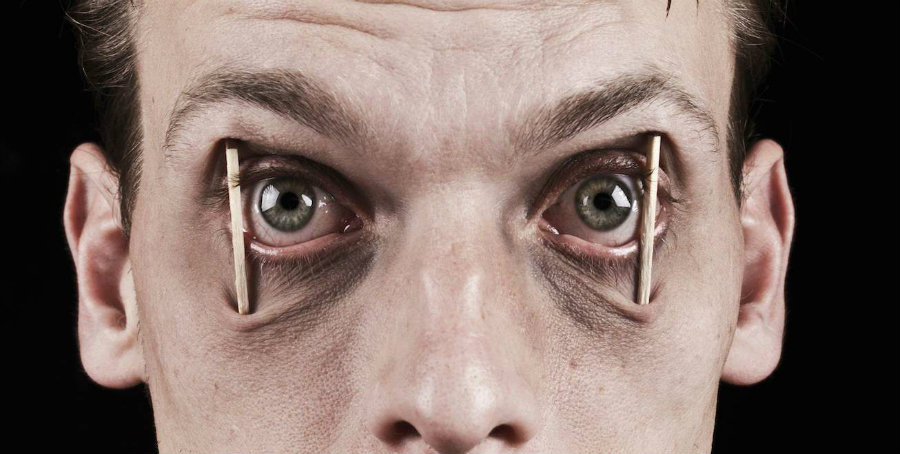A study conducted by the Rand organization showed that if people don’t sleep well, they directly harm the economy of countries.
People usually stay up late because they have to finish work, they hang out with friends, or just stare at their phones for extended time periods. Even one of the most common reasons is that people are too stressed to fall asleep. That situation, according to this new Rand study, represents a significant problem for the productive system of any nation.

This lack of sleep problem costs about $411 billion a year to the American Government. An estimated amount that the group of economists and psychologists from Rand deducted when translating the study on sleep consequences to an economic model.
Right now more than a third of Americans grown ups are not getting the suggested amount of sleep per day. Until this date, it was believed that sleep problems were related to augmenting the risk of heart diseases, diabetes, high blood pressure, among others.
In previous studies from the Rand organization, it was proved that those people who didn’t sleep more than 6 hours a day were a 13 percent more likely to die at any given moment than those who had slept more than 7 hours. All of these consequences not only put health in danger but also damage the economy.
Economy is being hurt
According to a survey made by the Britain’s Healthiest Workplace to a total of 66,000 workers, it was proved that those people who sleep for only six hours a night lost 2.4 percent in productivity compared to those individuals who sleep more than eight or nine hours. This represents a lost of 6 days per year regarding the workers that don’t sleep well. For the people who sleep around six and seven hours per night, the loss is 3.7 days.
In little scale, this doesn’t seem like a big problem, but when the entire sleep-deprived American workforce is added the loss goes up to 1.23 million days, a much surprising number.

In this issue, The Centre for Disease Control and Prevention (CDC) has declared sleep deprivation a “public health problem” within the United States. Not only because of the $411 billion loss per year but also because of the rise of 10 percent in the risk of mortality result of insufficient sleep in population, which ultimately also affects the economy.
“This is alarming as insufficient sleep has been found to be associated with a range of negative health and social outcomes, including success at school and in the labour market,” the study from the Rand organization stated.
Is not only the United States
The Washington Post conducted a study based on projections made from the previous Rand analysis. The news agency could predict some of the effects of this sleep problem in every national economy by using an extensive database of workers from five different countries.
In the study, it was showed that Japan would be the country with the most economic damage because of the lack of sleep problem, costing that nation almost 3 percent of their GDP. That represents $138 billion and 604,000 working days lost. The second most affected country was the United States, followed by the United Kingdom with 1.86 percent GDP, $50 billion and 207,000 working days, Germany with 1.56 percent, $60 billion and 204,000 working days, and Canada with 1.38 percent, $21,4 billion and 78,000 working days.
This shows that bad sleep habits not only affect health but also directly damage the global economy. The study is not exact in a scientific way because there could be a misreport of people behavior at the time of the investigations. However, the inclusion of a price tag regarding how much is costing to countries the lack of sleep problem must turn alarms on employers and public authorities.
How can it be fixed?
Over the years, many prominent business figures and successful personalities have said that sleep is not necessarily important. President Obama stated in an interview that he commonly shuts down the lights at the White House at 1 A.M. and that he always got up before 6 am. Even President-elect Donald Trump wrote in his book “Think like a Billionaire” that he sleeps about 4 hours per night, and advised people to “don´t sleep any more than they have to.”
However, there are already several major employers that are introducing sleep-friendly programs for their workers. Aetna is developing a sleep incentive program, and even the U.S. Army is using the “Performance Triad,” that includes correct sleeping, diet, and physical fitness.
“Solving the problem of insufficient sleep represents a potential ‘win-win’ situation for individuals, employers and the wider society,” the writers of the study stated.
The Rand organization presented three key recommendations regarding this problem. They advised people to set “consistent wake-up times” and to limit the use of electronic devices before bedtime. Also, they suggested to the employers to recognize sleep as a priority and to design better and brighter workplaces. Finally, for public authorities, they recommend the “Support health professionals in providing sleep-related help” and to make schools start later.
Source: Popular Science
